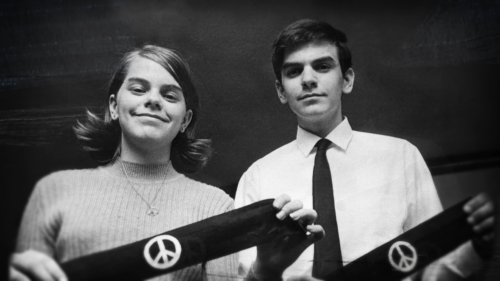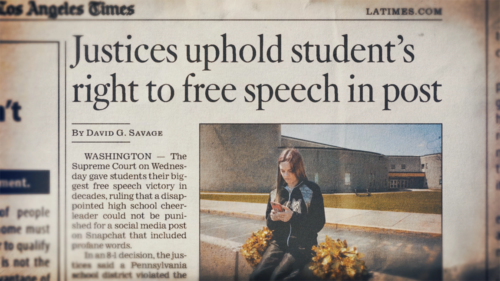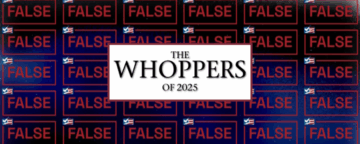In advance of Constitution Day, September 17, Annenberg Classroom has released a new film on the First Amendment as it applies to student freedom of speech.
The First Amendment’s right to free speech is one of our most important rights as citizens. But what does freedom of speech mean for students in public schools? How do you balance a school’s need for order with a student’s right to free expression? The film “The First Amendment: Student Freedom of Speech” explores the evolution of student free speech rights through Supreme Court cases, from Tinker v. Des Moines to Mahanoy Area School District v. B.L., the latter more often known as the case of the Snapchatting cheerleader.
The film is among the many free, nonpartisan, high-quality resources offered to educators, students, and families by Annenberg Classroom and the Civics Renewal Network, both projects of the Leonore Annenberg Institute for Civics at the Annenberg Public Policy Center of the University of Pennsylvania.
The First Amendment to the Constitution, as historian and University of Pennsylvania professor Mary Frances Berry says in the film, “protects your freedom of expression from government intrusion.” However, Catherine Ross of George Washington University Law School notes that “individuals or many other kinds of organizations remain perfectly free to punish you for what you said.” Public schools – which are technically considered part of the government – have long sought to control what students are and are not allowed to say.

The 28-minute film explores what free speech protections are accorded to students in schools and how we decide what speech is protected versus what is not, examining in detail legal cases related to student freedom of speech. These include the groundbreaking 1969 case Tinker v. Des Moines Independent Community School District, in which students were suspended for wearing black armbands to school to protest the Vietnam War, and the 2021 case Mahanoy Area School District v. B.L., in which 14-year-old cheerleader Brandi Levy was suspended from the school team because of a profanity-laden Snapchat speaking negatively about the school which she posted while off-campus.

In the latter case, the Supreme Court ruled 8 to 1 in favor of Levy, asserting that her post did not cause significant disruption to the school and that therefore her off-campus speech was protected by the First Amendment. Of the majority opinion, Sigal Ben-Porath of the University of Pennsylvania’s Graduate School of Education said, “What Justice [Stephen] Breyer is expressing really is the schools, broadly, as institutions, are meant to train citizens. And the way to do it is to allow young people to exchange their views, even when they are inappropriate sometimes, even when they are mistaken.”
Watch the film below, or via the Annenberg Classroom site here.
Annenberg Classroom provides resources for middle and high school students and features a library of more than 60 videos, including conversations with Supreme Court justices, interactive games, a guide to the Constitution, and other resources. Previous award-winning films in The Constitution Project series include:


